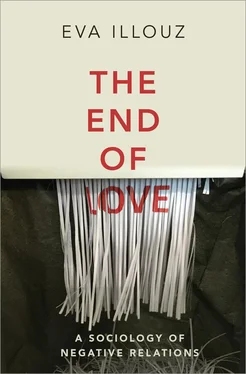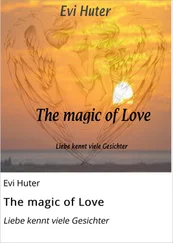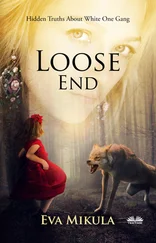Under the influence of economic thought, we have been mostly interested in positive acts of choice—what is called “decision-making”—but we have let slip from our attention a far more significant aspect of choice, namely negative choice , the rejection, avoidance, or withdrawal from commitments, entanglements, and relationships in the name of freedom and self-realization. The intellectual (and cultural) situation was apparently different at the beginning of the twentieth century when famous thinkers like Sigmund Freud and Émile Durkheim had inquired about “negative relations,” Freud under the heading of the death instinct and Durkheim under that of anomie. In 1920, in an essay known as “Beyond the Pleasure Principle,” Freud confronted the compulsion to repeat and rehearse distressing experiences, a repetition that could lead to the self-destruction of the subject, to the impossibility of he or she fully entering into or maintaining relationships. Earlier, in 1897, Durkheim had published the founding text of sociology, Suicide , 45which may be viewed as an inquiry into negative relations, a sociality in reverse, that is, into the undoing of social membership. Both Freud and Durkheim have seized at once two conflicting principles, sociality and anti-sociality, as coextensive and contiguous. I continue in their footsteps without, however, viewing anti-sociality in essentialist terms. Instead, I explore negative sociality as an expression of contemporary ideologies of freedom, of technologies of choice, and of advanced consumer capitalism, in fact as part and parcel of the symbolic imaginary deployed by capitalism. In neo-liberal sexual subjectivity, negative sociability is not experienced as a negative mental state (made of fear, or thoughts of death or isolation), but rather as what Günther Anders called “self-assertive freedom,” a freedom in which the self affirms itself by negating or ignoring others. 46Self-assertive freedom is perhaps the most prevalent form of freedom in personal relationships and, as I show, presents all the moral ambiguities of freedom in the institution of heterosexuality.
Sociologists of modernity have viewed the period ranging from the sixteenth to the twentieth centuries as one that saw the generalization to all social groups of the cultivation of new forms of relationships—the love marriage, the disinterested friendship, the compassionate relationship to the stranger, and national solidarity, to name a few. All of these can be said to be novel social relations, novel institutions, and novel emotions all in one, and they are all resting on choice. Early emotional modernity was thus a modernity in which freedom (to choose) was institutionalized and individuals experienced their freedom in the refinement of the practice of choice, experienced through emotions. Bonds of “friendship,” “romantic love,” “marriage,” or “divorce” were self-contained, bounded social forms, containing clear emotions and names for these emotions, studied by sociology as definable and relatively stable empirical and phenomenological relationships. In contrast, our contemporary hyperconnective modernity seems to be marked by the formation of quasi-proxy or negative bonds: the one-night stand, the zipless fuck, the hookup, the fling, the fuck buddy, the friends with benefits, casual sex, casual dating, cybersex, are only some of the names of relationships defined as short-lived, with no or little involvement of the self, often devoid of emotions, containing a form of autotelic hedonism, with the sexual act as its main and only goal. In such networked modernity, the non-formation of bonds becomes a sociological phenomenon in itself, a social and epistemic category in its own right. 47If early and high modernity were marked by the struggle for certain forms of sociability where love, friendship, sexuality would be free of moral and social strictures, in networked modernity emotional experience seems to evade the names of emotions and relations inherited from eras where relationships were more stable. Contemporary relationships end, break, fade, evaporate, and follow a dynamic of positive and negative choice, which intertwine bonds and non-bonds.
It is this dynamic I want to elucidate in this book, thereby continuing my previous preoccupation with the interaction between love, choice, and the culture of capitalism. 48But while in my previous study, I shed light on the changes in the very notion and structure of choice of a mate, here I focus on another and new category of choice: the choice to “unchoose”—a form of choice that comes after the various struggles for freedom we saw during the last two hundred years. If during the formation of modernity actors fought for their right to have a sexuality unhindered by community or social constraints, in contemporary modernity they take for granted that sexuality is a choice and a right, unquestioned and unquestionable (with the exception perhaps of gay marriage, which has been the latest frontier of the old struggle). One’s freedom is incessantly exercised by the right to not engage in or disengage from relations, a process that we may call the “choice to unchoose”: to opt out of relationships at any stage.
Although I am not suggesting a straightforward, direct causality, the analogy between the history of capitalism and that of romantic forms is striking. In its modern period, capitalism took such economic forms as the corporation, the limited liability company, the international financial markets, and the commercial contract. In these economic forms, hierarchy, control, and contract are central. These were reflected in the view of love as a contractual relationship, freely entered, bound by ethical rules of commitment, yielding obvious returns and demanding long-term emotional strategies and investment. Insurance companies were crucial institutions to minimize risks, acting as third parties between two contractors, thus increasing the reliability of the commercial contract. This social organization of capitalism evolved and morphed into a ramified global network, with scattered ownership and control. It now practices new forms of non-commitment through flextime or outsourcing labor, providing little social safety nets, and breaking bonds of loyalty between workers and workplaces in legislation and practices that decreased dramatically corporations’ commitment to workers. Contemporary capitalism has also developed instruments to exploit uncertainty—for example, derivatives—and even makes the value of certain goods uncertain creating “spot markets,” offering prices that are incessantly adjusted to demand, thus simultaneously creating and exploiting uncertainty. Practices of non-commitment and non-choice enable a corporation’s quick withdrawal from a transaction and the quick realignment of prices, practices that enable corporations to quickly form and break loyalties, and the swift renewal and changing of lines of production and the unhindered firing of the workforce. All of these are practices of non-choice. Choice, which was the early motto of “solid capitalism,” then has morphed into non-choice, the practice of perpetually adjusting one’s preferences “on the go,” not to engage in, pursue, or commit to relationships in general, whether economic or romantic. These practices of non-choice are somehow combined with intensive calculative strategies of risk assessment.
Traditionally, sociology—symbolic interactionism in particular—has almost axiomatically focused on the micro-formation of social bonds, and has by definition been unable to grasp the more elusive mechanism of how relationships end, collapse, evaporate, or fade. In networked modernity, the proper object of study becomes the ways in which bonds dissolve where this dissolution is taken to be a social form. This dissolution of relationships occurs not through a direct breakdown of relationships—alienation, reification, instrumentalization, exploitation—but through the moral injunctions that constitute the imaginary core of the capitalist subjectivity, such as the injunction to be free and autonomous; to change, optimize the self and realize one’s hidden potential; to maximize pleasure, health, and productivity. It is the positive injunction to both produce and maximize the self that shapes “negative choice.” I will show that the choice to unchoose is now a crucial modality of subjectivity, made possible by a variety of institutional changes: the no-fault divorce (which made it easier for people to opt out of marriage for their own subjective emotional reasons); the contraceptive pill, which made it easier to have sexual relationships without the institutional stakes of marriage and thus without emotional commitment; the consumer market of leisure, which provides a large number of venues to meet and an ongoing supply of sexual partners; the technology afforded by the Internet, especially by dating sites such as Tinder or Match.com, which turn the subject into a consumer of sex and emotions, entitled to the right to use or dispose of the commodity at will; and finally the worldwide success of platforms like Facebook, which both multiply relationships and which enable the quick “unfriending” as a technical feature of a software. These and many other less visible cultural features documented in this book make the choice to unchoose into a dominant modality of subjectivity in networked modernity and societies characterized by advanced processes of commodification, the multiplication of sexual choice, and the penetration of economic rationality to all domains of society. 49The question of how and why actors will break, disengage from, ignore, or neglect their relationships is all the more interesting because there is powerful empirical evidence that actors in general are “loss averse,” meaning 50they will go through great efforts not to lose something they already have or can have. In fact, as chapters 2and 3show, in hyperconnective polities actors easily and regularly overcome loss aversion through the convergence of market, technology, and consumer forces. “Negative choice” is as powerful and present in the lives of people in hyperconnective modernity as was the positive choice to form bonds and relations with others in the formation of modernity.
Читать дальше












